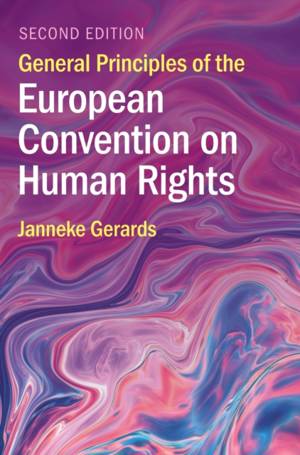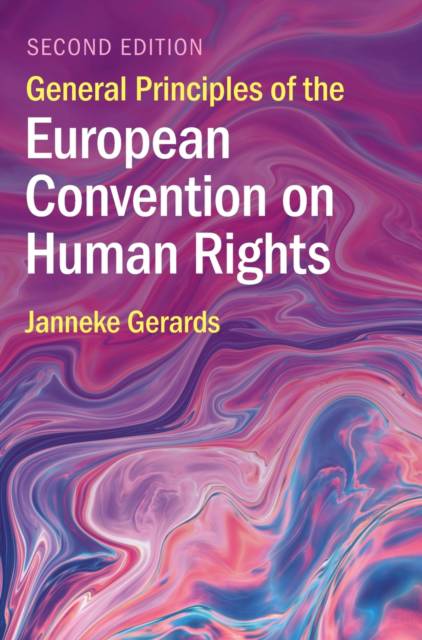
Bedankt voor het vertrouwen het afgelopen jaar! Om jou te bedanken bieden we GRATIS verzending (in België) aan op alles gedurende de hele maand januari.
- Afhalen na 1 uur in een winkel met voorraad
- Gratis thuislevering in België vanaf € 30
- Ruim aanbod met 7 miljoen producten
Bedankt voor het vertrouwen het afgelopen jaar! Om jou te bedanken bieden we GRATIS verzending (in België) aan op alles gedurende de hele maand januari.
- Afhalen na 1 uur in een winkel met voorraad
- Gratis thuislevering in België vanaf € 30
- Ruim aanbod met 7 miljoen producten
Zoeken
€ 199,95
+ 399 punten
Uitvoering
Omschrijving
The European Convention on Human Rights is one of the world's most important and influential human rights documents. It owes its value mainly to the European Court of Human Rights, which applies the Convention rights in individual cases. This book offers insight into the concepts and principles that are key to understanding the European Convention and the Court's case law. It explains how the Court approaches its cases and its decision-making process, illustrated by numerous examples taken from the Court's judgments. Core issues discussed include types of Convention rights (such as absolute rights); the structure of the Court's Convention rights review; principles and methods of interpretation (such as common-ground interpretation and the use of precedent); positive and negative obligations; vertical and horizontal effect; the margin of appreciation doctrine; and the requirements for the restriction of Convention rights.
Specificaties
Betrokkenen
- Auteur(s):
- Uitgeverij:
Inhoud
- Aantal bladzijden:
- 406
- Taal:
- Engels
Eigenschappen
- Productcode (EAN):
- 9781316517536
- Verschijningsdatum:
- 13/07/2023
- Uitvoering:
- Hardcover
- Formaat:
- Genaaid
- Afmetingen:
- 170 mm x 244 mm
- Gewicht:
- 843 g

Alleen bij Standaard Boekhandel
+ 399 punten op je klantenkaart van Standaard Boekhandel
Beoordelingen
We publiceren alleen reviews die voldoen aan de voorwaarden voor reviews. Bekijk onze voorwaarden voor reviews.









